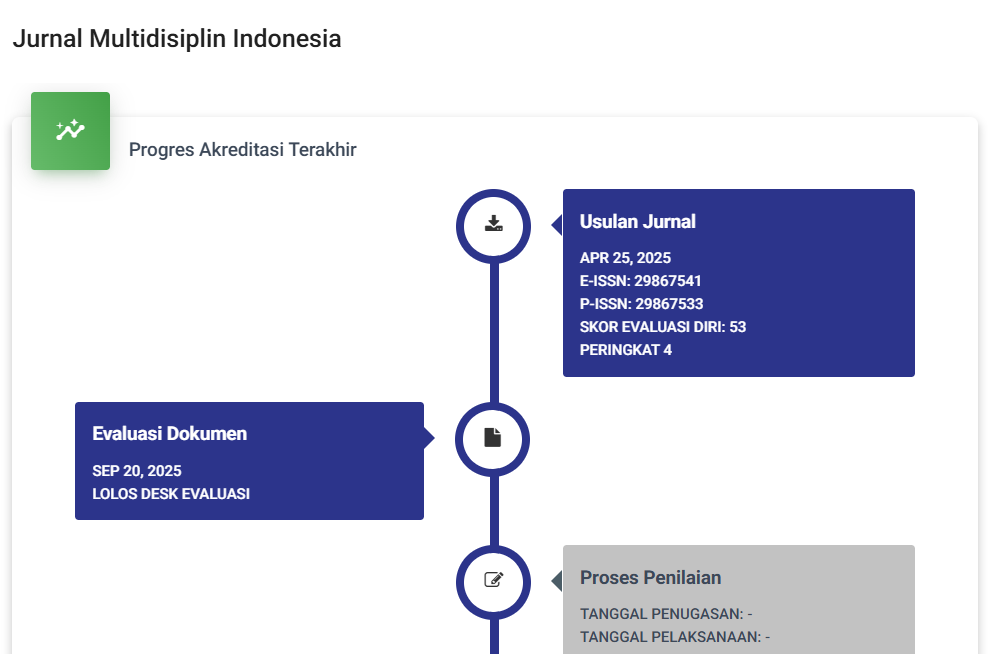Teknologi dan Manusia : Tinjauan Dalam Perspektif Filsafat Etika
DOI:
https://doi.org/10.62007/joumi.v1i2.233Keywords:
Philosophy, TechnologyAbstract
This article explores the close relationship between philosophy and science as ethical guides in the development and application of technology. Philosophy provides a framework of values of Human Rights (HAM), justice, freedom and responsibility that are important to ensure technology is used in a beneficial and safe manner for humans and the environment. This research is qualitative research in the nature of a literature study or literature review. The literature review method is a method carried out by collecting and reading existing sources of information. The findings of this article include the urgency of considering the social, cultural and sustainability impacts of technology, as well as promoting sustainable and responsible innovation. Philosophy as an ethical guide is shown to be the key to bridging the complexity of the relationship between technology and humans.
References
Adler, D.C. (1986). The ethics of technology. Chest, 89 5, 765-6 .
Alamsyah, A. A. (2023). MENYELARASKAN NILAI-NILAI LOKAL DAN GLOBAL: PERSPEKTIF FILSAFAT TENTANG PENDIDIKAN ISLAM DI ERA GLOBALISASI. PROGRESSA: Journal of Islamic
Religious Instruction, 07(02). https://jurnal.stitradenwijaya.ac.id/index.php/pgr/index
Barry, C. (2001). The Ethical Assessment of Technological Change: an overview of the issues. Journal of Human Development, 2(2), 167-189.
Brey, P. (2016). Constructive philosophy of technology and responsible innovation. Philosophy of technology after the empirical turn, 127-143.
Bura, S. (2023). Teori Filsafat Pragmatisme dan Relevansinya dalam Menyikapi Peristiwa Konteporer.
Christians, C.G. (2011). THE PHILOSOPHY OF TECHNOLOGY. Journalism Studies, 12, 727 - 737.]
Fahrurrozhi, A., & Kurnia, H. (2022). Filsafat Ilmu Indonesia: Kontribusi Berkelanjutan terhadap Pengembangan Ilmu Pengetahuan. Academy of Social Science and Global Citizenship Journal, 2(2), 61–67. https://doi.org/10.47200/aossagcj.v2i2.1840
Faiz, Ula, N. F., & Zubaidi, A. (2022). RELASI ETIKA DAN TEKNOLOGI DALAM PERSPEKTIF FILSAFAT ISLAM. TRILOGI: Jurnal Ilmu
Teknologi, Kesehatan, Dan Humaniora, 3(3), 231–237. https://doi.org/
Habibah, S. (n.d.). IMPLIKASI FILSAFAT ILMU TERHADAP PERKEMBANGAN ILMU PENGETAHUAN DAN TEKNOLOGI.
Herlambang, Y T. 2018. Pedagogik Telaah Kritis Ilmu Pendidikan dalam Multiperspektif. Jakarta: Bumi Aksara
Herlambang, Y. T. (2015). Pendidikan kearifan etnik dalam mengembangkan karakter. EduHumaniora| Jurnal Pendidikan Dasar Kampus Cibiru, 7(1).
Herlambang, Y. T., & Abidin, Y. (2023). Pendidikan Indonesia Dalam Menyongsong Dunia Metaverse: Telaah Filosofis Semesta Digital Dalam Perspektif Pedagogik Futuristik. Naturalistic: Jurnal Kajian dan Penelitian Pendidikan dan Pembelajaran, 7(2), 1632-1642.
Himmelreich, J. (2019). Ethics of technology needs more political philosophy. Communications of the ACM, 63(1), 33-35.
Irfhan Muktapa, M. (2021). Implikasi Filsafat Ilmu dan Etika Keilmuan dalam Pengembangan Ilmu Pengetahuan Modern. 3(2), 20–29. https://belaindika.nusaputra.ac.id/index
Kitcher, P. (2011). The ethical project. Harvard University Press.
Klein, S. (1989). Platonic Virtue Theory and Business Ethics. Business and Professional Ethics Journal, 8, 59-82.
Kusumasanthi, D., Bagus, I., Arta Wiguna, A., & Puspawati, S. (2023).
EKSISTENSI FILSAFAT KOMUNIKASI DI ERA DIGITAL.
Loendorf, W.R. (2010). The Social, Economic, And Political Impact Of Technology: An Historical Perspective.
Louden, R.B. (1997). ON SOME VICES OF VIRTUE ETHICS.
McGavin, P.A. (2013). Conversing on ethics, morality and education. Journal of Moral Education, 42, 494 - 511.
Mutiah, T., & Albar, I. (2019). ETIKA KOMUNIKASI DALAM MENGGUNAKAN MEDIA SOSIAL (Vol. 1, Issue 1).
Ngafifi, M. (2014). Kemajuan teknologi dan pola hidup manusia dalam perspektif sosial budaya. Jurnal Pembangunan Pendidikan: Fondasi dan Aplikasi, 2(1).
O'Donnell, D., & Henriksen, L.B. (2002). Philosophical foundations for a critical evaluation of the social impact of ICT. Journal of Information Technology, 17, 89-99.
Patimah, L., & Herlambang, Y. T. (2021). Menanggulangi Dekadensi Moral Generasi Z Akibat Media Sosial Melalui Pendekatan Living Values Education (LVE). PEMBELAJAR: Jurnal Ilmu Pendidikan, Keguruan, Dan Pembelajaran, 5(2), 150.
Pin, Y. (2014). Review on Theory and Practice of “Responsible Innovation”. Studies in Philosophy of Science and Technology.
Putri, I. A., Aribowo, M., Ariyanti, N. D., Jesika, G. A., & Huda, T. (2014).
FILSAFAT ILMU “Etika dalam Pengembangan Ilmu dan Teknologi.”
Simon, Lie Lie, T., & Komaling, H. W. (2021). Prinsip-Prinsip Etika Kristiani Bermedia Sosial. In Copyright© (Vol. 1, Issue 1). https://ejournal.iaknpky.ac.id/index.php/pambelum
Sprigge, T.L. (1991). The Greatest Happiness Principle. Utilitas, 3, 37 - 51. Subagia, I. N. (2015). Etika Sebagai Dasar Pengendalian Diri Manusia. Jurnal
Penjaminan Mutu, 1(1), 89-100.
Trindade, F.M., & Rasera, E.F. (2012). Considerações Sobre uma Ética Relacional.
Turner, T. R., Wagner, J. K., & Cabana, G. S. (2018). Ethics in biological anthropology. American Journal of Physical Anthropology, 165(4), 939.
Vermaas, P.E., Kroes, P., & Meijers, A.W. (2017). Constructive Philosophy of Technology and Responsible Innovation.
Voegtlin, C., & Scherer, A. G. (2017). Responsible innovation and the innovation of responsibility: Governing sustainable development in a globalized world. Journal of business ethics, 143, 227-243.
Wahid, R., & Herlambang, Y. T. (2022). Pelatihan Literasi Digital Melalui Kegiatan Workshop Membuat Infografis Sederhana Kepada Siswa SDN Cijawura. JurnalKsatria: Jurnal Pengabdian Kepada Masyarakat, 1 (1), 21-30.
Downloads
Published
How to Cite
Issue
Section
License
Copyright (c) 2023 Galuh Nur Insani, Salwa Cantika Khoirunnisa, Yusuf Tri Herlambang

This work is licensed under a Creative Commons Attribution-ShareAlike 4.0 International License.







